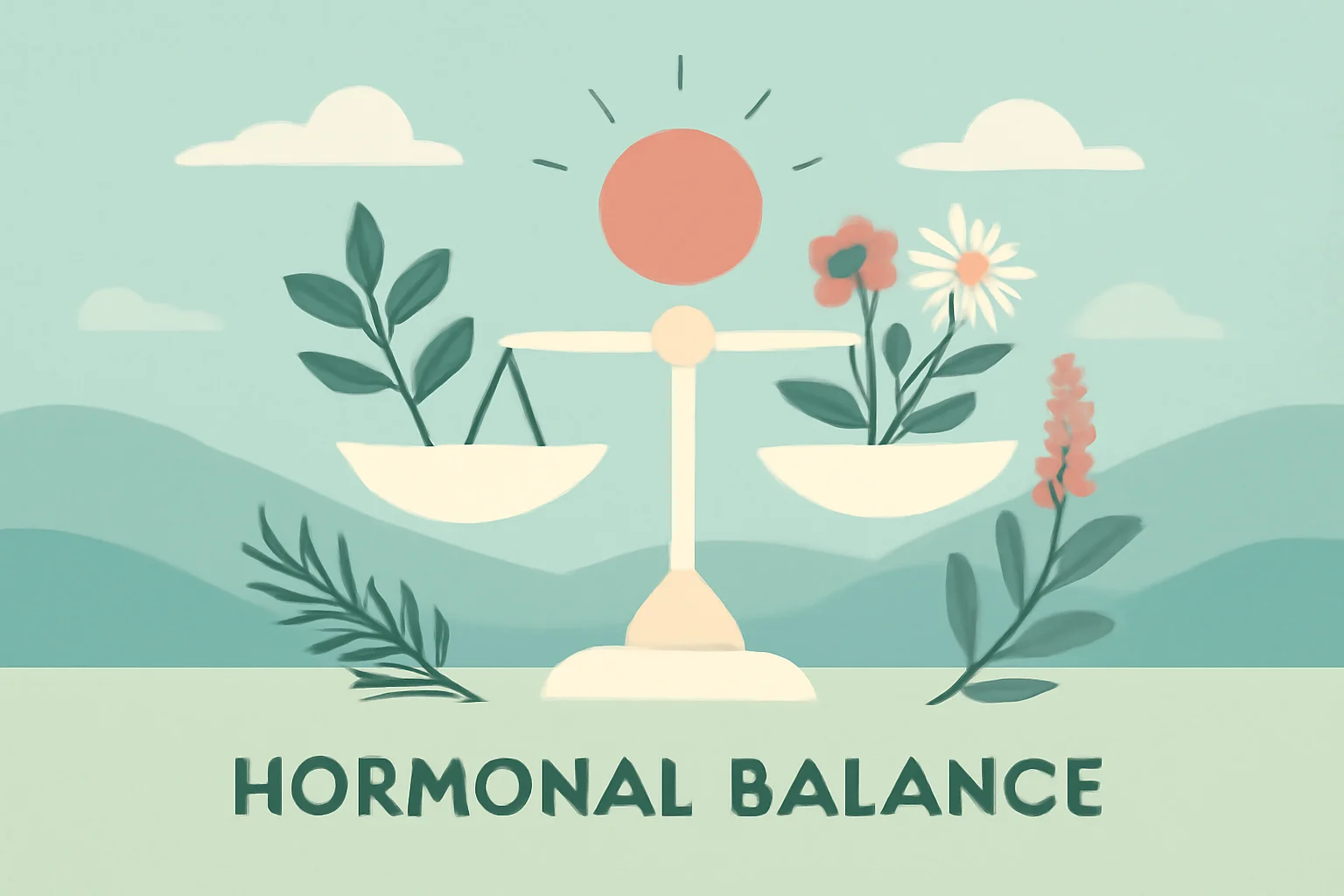
Symptoms of Progesterone Deficiency and Natural Treatment Options
The progesterone is a key hormone that plays a role in the functioning of the female reproductive system. During the menstrual cycle, progesterone levels fluctuate, and the hormone’s level is particularly important for maintaining pregnancy. When progesterone levels are lower than normal, it can cause various health issues that affect the functioning of the female body, the menstrual cycle, and fertility. Progesterone deficiency can occur in many women’s lives and is often not recognized by its symptoms.
Symptoms and Causes of Progesterone Deficiency
The symptoms of hormonal imbalance cover a wide range and often resemble other issues, making diagnosis difficult. Progesterone deficiency can be associated with various conditions, including premenstrual syndrome (PMS), infertility, and menopause. The decrease in progesterone levels can also be linked to aging, so raising awareness about hormonal changes is crucial for women’s health. Understanding these issues and acting with the proper information can help women feel better and improve their health status.
What is Progesterone and What Role Does it Play in the Body?
Progesterone is a hormone produced by the ovaries that is essential for the female reproductive system. It is produced in the second half of the menstrual cycle, after ovulation, and prepares the uterine lining for the implantation of a fertilized egg. If fertilization does not occur, progesterone levels decrease, leading to menstrual bleeding.
The role of progesterone is not limited to reproduction. It also affects bone health, blood pressure, and metabolism. Additionally, it contributes to stabilizing mood and plays a role in maintaining the condition of the skin and hair.
Symptoms of progesterone deficiency can vary but often include menstrual irregularities, mood swings, insomnia, and fertility issues. The decrease in hormone levels is particularly noticeable during different stages of a woman’s life cycle, such as the premenopausal or menopausal period.
It is important to note that progesterone deficiency can not only cause hormonal imbalance but can also lead to other long-term health issues. Maintaining the balance between hormones is essential, so understanding the treatment of progesterone deficiency can be key to preserving women’s health.
Treatment and Prevention of Progesterone Deficiency
The treatment of progesterone deficiency can occur in several ways, and the method of treatment largely depends on the cause of the problem and the severity of the symptoms. Doctors often recommend hormone replacement therapy, which can help increase progesterone levels. This allows for the restoration of hormonal balance and reduction of symptoms.
Additionally, natural methods can also help in treating progesterone deficiency. Proper nutrition, regular exercise, stress management techniques, and adequate sleep can all contribute to improving hormonal balance. Nutrient-rich foods such as vegetables, fruits, whole grains, and healthy fats can help support the hormonal system.
From a prevention standpoint, it is also important to monitor body weight and stress levels. Maintaining a healthy lifestyle that includes regular exercise, balanced nutrition, and stress management techniques can significantly contribute to stabilizing progesterone levels.
Furthermore, women should pay attention to their menstrual cycles and consult a doctor in case of any abnormalities. To maintain hormonal balance, it is important to be aware of one’s own body and hormonal health.
Progesterone Deficiency and Fertility
Progesterone deficiency plays a particularly important role in terms of fertility. Progesterone is essential for maintaining pregnancy, as it helps prepare the uterine lining for the implantation of a fertilized egg. If progesterone levels are low, the uterine lining will not be properly prepared, which can lead to miscarriage or pregnancy loss.
Women who suffer from progesterone deficiency may often experience difficulties in conception. Restoring hormone levels can help improve fertility. Hormone replacement therapy, a nutritious diet, and stress management methods can all contribute to raising progesterone levels and thereby increasing fertility.
However, it is important to note that progesterone deficiency is not the only cause of fertility problems. Other hormonal imbalances, such as fluctuations in estrogen or testosterone levels, can also affect fertility. Therefore, women who struggle with fertility issues should seek medical assistance to determine the exact causes and appropriate treatment.
Understanding the connections between progesterone deficiency and fertility allows women to make informed decisions about their health and take necessary steps to restore their hormonal balance when needed.
—
This article does not constitute medical advice. Always consult a doctor or specialist for health issues.

